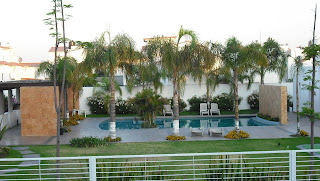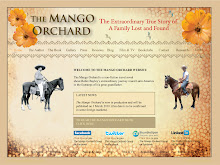I arrive in Manchester to film a short documentary for the BBC about the story told in The Mango Orchard. I hadn’t prepared for the night time dagger-like icy wind that rushes in to the carriage when I open the train door at Piccadilly station.
In the morning I am collected from my hotel by the person due to interview me, Judy, who happens to be an old friend of mine. She remembers my complaint about the lack of a hospitality suite when I have previously been on the BBC and very sweetly picks me up from my hotel with a bag full of fresh fruit, which of course, I don’t touch.
She drives me to Helmshore Mill, a working mill and museum, where we join the rest of the crew and I’m introduced to Christine Taylor, a local historian, invited to add some expertise on the area where my great grandfather grew up. I have lots of questions for her but every time I ask anything, Ged the producer stifles the conversation; he wants to capture my reactions to what she’s saying on film. It takes time to set up the shot, organise the lighting and microphones. I’m standing with Christine in front of a trestle table, on which are arranged photographs of Tottington in days of yore. I begin to leaf through them but am again told to wait until the cameras are running.
We talk about the weather.
The team is ready and just as the record light lights up on the camera, Ged says, “By the way, Christine has a surprise for you.”
I have no idea what this surprise may be, but as I spent years investigating my great grandfather’s story, I can’t believe that anyone has managed to uncover any document I haven’t yet seen, so I brace myself, ready to feign amazement. The camera is zooming in on me and I’m beginning to feel self-conscious. I realise that my face has frozen into a most unconvincing smile and as I suddenly don’t know what to do with my hands I wedge one into my back pocket. This must look very camp but I hold the pose.
Christine hands me two sheets of paper. “I found a letter your great grandfather wrote on his way to Mexico.”
“What?!” I no longer have to pretend to be amazed. I am overwhelmed. I spent months looking for this.
I read the letter, and forget that cameras are aimed at me. I read about the storms he endured – just as I had imagined – but then I see where he wrote the letter: Jamaica. What the hell was he doing in Jamaica?? And it’s not just Jamaica. He describes going for a drive along the side of the abandoned Panama Canal project “hundreds of railway waggons and scores of engines rotting away…” He talks about passing though the Virgin Isles and Haiti, where “the natives worship a god called Omar, and it is a common thing for mothers to eat their babies as a sacrifice to this god.”
Not for the first time, my great grandfather has dumbfounded me. His journey to Mexico didn’t take five weeks, as I had understood; it took over seven months! What was he doing? Did he leave scores of other secret families scattered around the Caribbean?
Maybe I should pop over and have a look.
The filming continues at a handful of other north Manchester locations. Judy and I are filmed walking around the mill in Tottington where my great grandfather worked. The mill is now a carpet factory and there’s little evidence of the mill that there once was. Forklift trucks with enormous, spikes on the front like jousting sticks, speed around carrying roles of carpet from one end of the factory to another. I have rarely been in a factory before. It is deafening.
How do I feel? Judy wants to know. It’s always a tricky one to answer. I’m not sure. I mutter something about my great grandfather and Judy is nodding.
“That sounded like a close,” says Ged.
“That sounded like a close to me,” confirms the cameraman. I am not sure what I’ve just said. To find out, I guess I’ll have to tune in in the New Year when it is screened.









